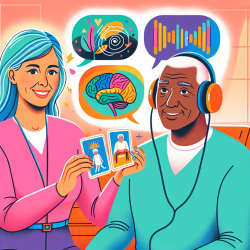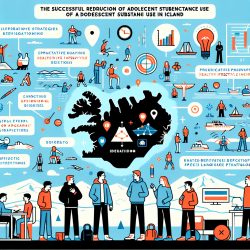Introduction
In the realm of speech-language pathology, the assessment of aphasia, a language disorder typically resulting from stroke, is crucial for developing effective rehabilitation strategies. Traditional methods of assessment are resource-intensive and require the presence of a skilled speech-language pathologist (SLP). However, the advent of automatic speech recognition (ASR) platforms offers a promising alternative. A recent study titled A Comparative Investigation of Automatic Speech Recognition Platforms for Aphasia Assessment Batteries provides insights into the potential of ASR platforms in aphasia assessment.
Research Insights
The study compares custom machine learning (ML) algorithms, specifically convolutional neural networks (CNN) and linear discriminant analysis (LDA), against off-the-shelf ASR platforms like Microsoft Azure and Google. The focus was on the naming and repetition subtests of aphasia batteries, using datasets of both healthy and aphasic speech.
The findings revealed that CNN-based algorithms significantly outperformed LDA and off-the-shelf platforms, achieving an impressive accuracy of 99.64% on healthy datasets. Microsoft Azure, although not trained on the same dataset, demonstrated comparable results to LDA and outperformed Google's platform.
Implications for Practitioners
These findings have profound implications for SLPs aiming to enhance their practice through technology. Here are some actionable insights:
- Embrace Technology: Consider integrating CNN-based algorithms into your assessment tools. Their superior accuracy can provide more reliable data, aiding in better diagnosis and treatment planning.
- Utilize Off-the-Shelf Platforms: While custom algorithms excel in specific tasks, platforms like Microsoft Azure can handle spontaneous speech, making them valuable for comprehensive assessments.
- Stay Informed: Continuous learning about advancements in ASR technology will empower you to make informed decisions, ensuring the best outcomes for your clients.
Encouragement for Further Research
The study underscores the potential of ASR platforms but also highlights the need for further research. Practitioners are encouraged to explore the following areas:
- Data Collection: Contribute to building larger datasets, particularly for diverse aphasia types, to improve the accuracy and applicability of ASR tools.
- Tool Development: Collaborate with technologists to develop tools that can automate more complex subtests, enhancing the efficiency of assessments.
- Hybrid Models: Investigate the potential of ensemble classifiers that combine the strengths of multiple ASR systems for more robust assessments.
Conclusion
The integration of advanced ASR platforms in aphasia assessment holds great promise for enhancing the practice of speech-language pathology. By leveraging these technologies, practitioners can improve the accuracy of assessments and ultimately, the outcomes for their clients. To delve deeper into the research, you can access the original study here.










